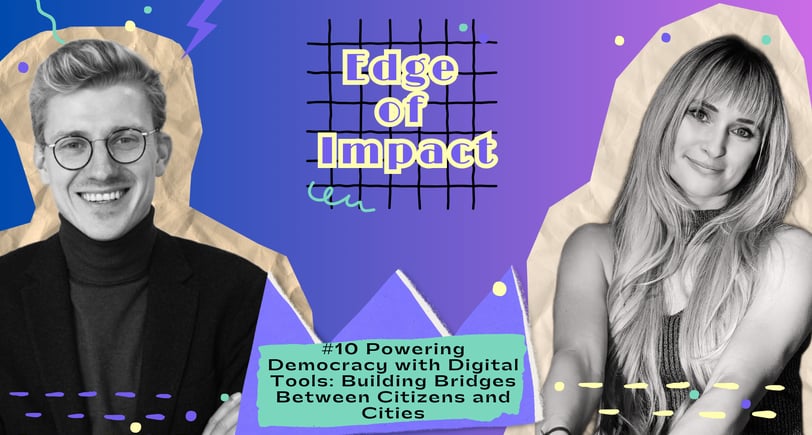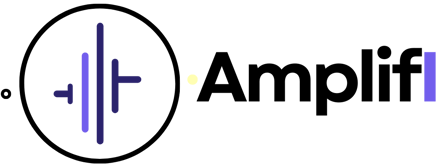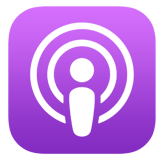#10 Powering Democracy with Digital Tools: Building Bridges Between Citizens and Cities
Discover how Go Vocal, a civic tech platform, empowers over 500 cities worldwide to transform public decision-making into a more inclusive, participatory, and responsive process. In this episode, explore the inspiring journey behind Go Vocal’s mission to foster trust and amplify diverse voices through innovative digital tools. Learn how their purpose-driven approach bridges the gap between citizens and governments, creating stronger, more connected communities. Tune in to hear about the impact of technology in shaping a collaborative future for democracy.
PODCAST
Odeta Ise
5/1/20256 min read


Let's dive into the Insight, Inspiration & Impact behind Go Vocal with Wietse Van Ransbeeck
Follow & Support Go Vocal
WSA Winning Year: 2019
Award: The World Summit Award
Category: Government & Citizen Engagement
Founders: Wietse Van Ransbeeck
Country: Belgium
On WSA website: https://wsa-global.org/winner/citizenlab/
In the vibrant streets of Brussels, a 21-year-old student named Wietse Van Ransbeeck stood at a turning point. Driven by a deep belief in democracy’s potential, he saw a disconnect between the fast-paced, connected world of the 21st century and the outdated methods for citizens to engage with local government. This spark of frustration, ignited in his own neighborhood, led Wietse and his co-founder Aline to create Go Vocal, a platform now empowering over 500 cities worldwide to make public decision-making more inclusive, participatory, and responsive. Wietse’s story is one of purpose-driven persistence, showing how inspiration can lead to insights that create lasting impact, guided by values of inclusion, trust, and community engagement.
A Frustration That Sparked Inspiration
Wietse’s journey began as a young student navigating city life for the first time. Living in Brussels with his partner Aline, he noticed opportunities for small, meaningful changes in their neighborhood, such as reimagining a local roundabout to improve safety and flow. Eager to share their ideas, they visited the city’s website, only to find a cumbersome process: a PDF form to print, fill out, and submit, with a slim chance of speaking for 30 seconds at a town hall meeting. For millennials accustomed to real-time digital connection, this felt like a barrier from another era.
This experience revealed a deeper issue. Wietse, passionate about democracy, believed it should extend beyond voting every few years. “Democracy isn’t just about elections,” he reflected. “It’s about giving people a continuous voice on issues that matter to them.” This conviction became the heart of Go Vocal, a platform designed to foster trust by enabling governments to listen to their communities and act on their input.
Turning Inspiration into Insight
As student entrepreneurs, Wietse and Aline started Go Vocal as a passion project, not a polished business plan. Supported partly by their parents, they had the freedom to experiment. Wietse taught himself to code, using open-source software to build a minimum viable product (MVP) that digitized citizen proposals. This resourceful approach allowed them to test their ideas quickly without waiting for a technical co-founder. “If we’d delayed to find the perfect tech partner, we’d have lost momentum,” Wietse said.
Their breakthrough came from connecting with “early believers,” local politicians who saw potential in their simple platform. Driving a small Fiat Panda across Belgium, Wietse and Aline pitched their vision, leveraging their youthful energy to stand out. “We got a lot of attention because we were 21, 23, and full of ideas,” Wietse recalled with a smile. Securing their first three paying clients confirmed their insight: cities were eager for better ways to engage citizens, especially younger people and busy families who rarely attended town hall meetings. Later, they were joined by a technical co-founder, Kun, who strengthened the platform’s capabilities.
Values That Drive Impact
Go Vocal’s mission is grounded in inclusion, participation, and responsiveness, values aligned with the UN’s Sustainable Development Goal 16.7. Wietse drew inspiration from the effective altruism framework, particularly the 80,000 Hours model, which focuses on tackling big, solvable, and neglected problems. The public sector, he realized, was ideal. “Government decisions impact billions of lives,” he noted. “Yet the sector was often ignored by tech innovators due to stereotypes about bureaucracy.”
Wietse and Aline’s commitment to purpose over profit defined Go Vocal’s path. Despite investor suggestions to pivot to the private sector for faster growth, they stayed focused on local governments, aiming to lead in civic tech. “We wanted to be the category leader,” Wietse said. This clarity attracted a diverse team of over 20 nationalities, united by a shared goal of strengthening democracy through inclusive governance.
Go Vocal’s platform reflects these values. It offers cities a customizable, white-label solution with tools like surveys, polls, participatory budgeting, and citizen proposals. It also provides back-office systems to streamline data analysis, often cutting administrative time by 50% or more with AI-driven insights. For example, the Belgian city of Leuven used Go Vocal to process 2,500 ideas for its strategic plan, clustering and summarizing them efficiently. By using ethical AI with transparent source references, Go Vocal ensures citizen voices are heard, fostering trust and accountability.
Creating Impact Through Listening
Go Vocal’s impact is evident across its 500+ partner cities. In London’s Borough of Newham, the “People Powered Places” program allocated £1.7 million annually to citizen-led projects, with over 10,000 residents voting on ideas like neighborhood enhancements. Impressively, 89% of participants felt more connected to their community, showing how Go Vocal fosters belonging. In Copenhagen, a citizen proposal for treatment guarantees for survivors of abusive homes gained 2,500 verified votes and was adopted by the city council. In St. Louis, Missouri, residents helped reallocate $250 million in settlement funds, proving that inclusive governance can handle high-stakes decisions.
These stories highlight Go Vocal’s role in amplifying diverse voices, especially from young people and low-income residents who are often underrepresented. By comparing participant demographics to census data, Go Vocal ensures inclusivity, though Wietse acknowledges the challenge of capturing every aspect of accessibility and socioeconomic diversity.
Lessons from the Journey
Wietse’s path had its challenges. Early on, Go Vocal faced client churn as cities used the platform for one-off projects rather than ongoing engagement. A rapid scale-up in 2022, growing from 30 to 60 employees in a year, strained cash flow, leading to a tough downsizing to 50. “That was the hardest part,” Wietse admitted, emphasizing the importance of taking responsibility as a founder. Yet, this challenge taught resilience and the value of profitability, which Go Vocal achieved in 2023.
Wietse shares insights for aspiring entrepreneurs: define the problem clearly before building solutions, seek early supporters who share your vision, and tackle challenges one at a time. “It’s not a straight path,” he said. “You solve one issue, then the next, and suddenly you see how far you’ve come.”
A Vision for Constructive Dialogue
Today, Go Vocal aims to reach 1,000 cities and engage 10 million citizens in the next three years. Wietse envisions using AI to facilitate constructive dialogue, reducing polarization by helping people listen to each other. “Democracy is about understanding different perspectives and finding common ground,” he said. By developing AI agents to summarize discussions and highlight consensus, Go Vocal seeks to address complex issues like climate action with empathy and nuance.
Wietse’s story shows that a moment of frustration, paired with a commitment to inclusive governance, can lead to profound impact. From a student’s vision in Brussels to a global leader in civic tech, his journey illustrates how listening to communities can transform democracy. As Go Vocal grows, it carries forward a vision of governance that is participatory, responsive, and deeply human, inviting everyone to shape a better future.








